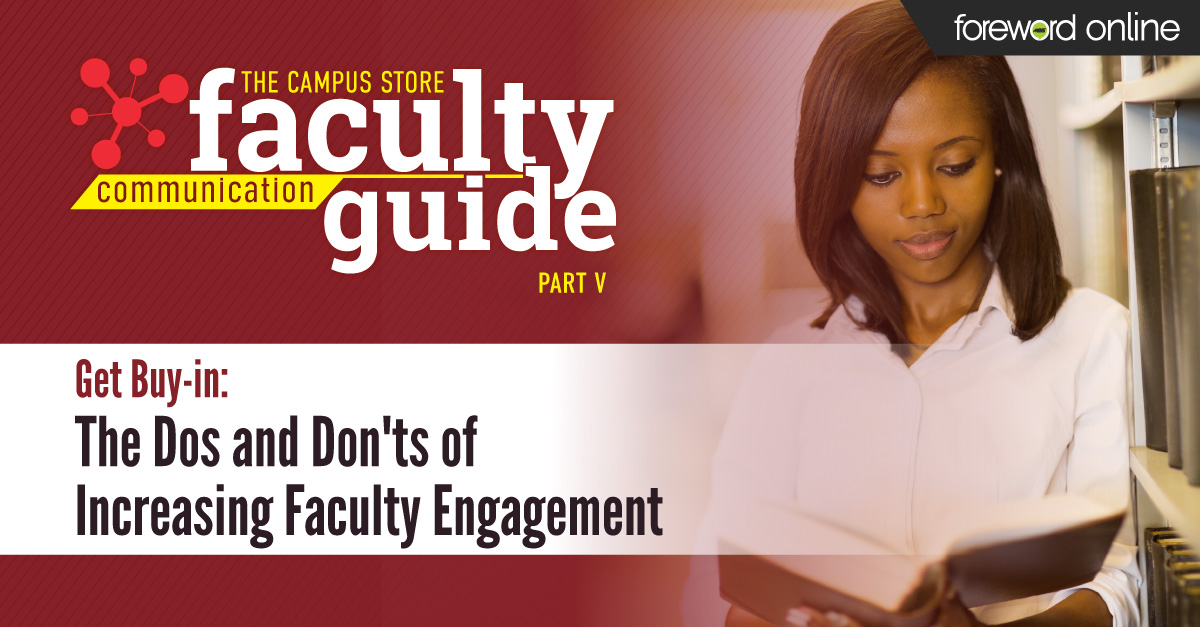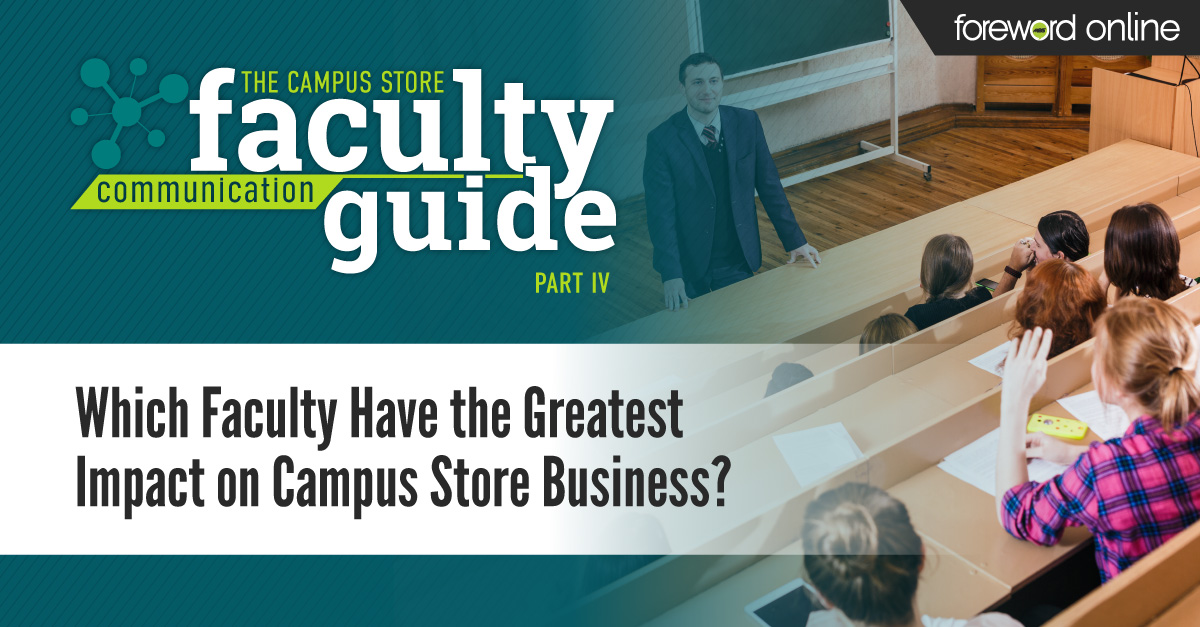Good faculty relations are critical to collegiate retail success. Of course, you need cooperation from educators when it comes to adoptions, but, far beyond that, faculty evangelists can boost your store’s campus profile and its bottom line. In marketing-speak, an evangelist is someone who spreads enthusiastic word-of-mouth about your store and services — and they do it for free.

For most students, a teacher is a trusted authority whose suggestions carry weight, and that makes them powerful allies in any retailer’s effort to thrive on campus. Unfortunately, faculty culture can seem opaque, even downright unwelcoming. However, with a little imagination and awareness, the time and effort you put into faculty relations can pay off exponentially in terms of streamlining your workload and increasing your store’s campus profile.
It's not just what you say — it’s when
As you no doubt know, it can be hard to get teachers’ attention: Why don’t they reply to my emails?
Chances are, lack of response from faculty has nothing to do with their views of you or the bookstore. It’s about timing. Target them with communications when they’re most likely to have a little time on their hands, and you’ll have more success.
Faculty have 24/7 jobs. When they’re not grading exams and papers, developing curricula, or meeting with students, they’re usually mired in work on a paper or book they need to publish to secure tenure — or to stay employed.
That’s why it’s wise to reach out in the weeks faculty are most likely to be … procrastinating. On most campuses, that’s between the start of the term and midterms, and between midterms and the week before finals.
Pro tip:
On an average four-year state school campus, the best time to contact faculty falls between Sept. 15 and Oct. 15 and from about Nov. 5 to Thanksgiving.
Faculty lives are flooded with classroom work at the start and end of each term. Students are in constant contact, anxious about classes, grades and other matters. It’s not unusual for a student to turn up in crisis during finals. Avoid communicating in the first week of classes and in the first week after midterms, when teachers are overwhelmed with prep or papers and tests to grade.
Contact faculty in the quieter moments when they’re still on campus but supposed to be writing their books or papers for publication. If your school works on a quarterly schedule, the ideal window for contacting teachers will be narrower than for those that work on a semester system. You can easily find out via Google or your school website when midterms and finals are planned.
Pro tip:
Wait until the second week after midterms before you reach out. In the first week, most faculty are neck-high with exams or papers to grade, and they are not always in the best, most communicative mood.
Faculty are like everyone else. They put stuff off — especially lengthy projects that require hours of intensive focus. Indeed, they might even be worse about procrastinating than most. A popular guide for academic writers, Robert Boice’s Advice for New Faculty Members, recommends that scholarly laborers devote no more than 15 minutes a day to their non-teaching written work. Why? Boice says that, in his many decades of advising, he’s never encountered a faculty member who could sit down and devote hours to writing without first delaying for hours, days, or even months. If scholars plan to give a full day to writing, he says, they usually fail to start. Fifteen minutes a day doesn’t sound like much, but it adds up and it’s much more pleasant than procrastinating. No one can relax easily when they’ve got a giant project looming they have yet to begin.
Pro tip:
If you have a specific task you want faculty to do — answer a survey question, RSVP for a faculty appreciation night at your store, etc — let them know how long it will take. A short window of time will entice them to get it done immediately.
If you need a response from teachers, let them know how long it will take. The ideal reply should require less than 15 minutes. The short time-frame will inspire them to get it done right away, cross it off their list and then move on to the next thing. When we’re faced with large unwieldy projects, short, simple tasks that offer a sense of accomplishment have added allure.
Start where you are
Whether your relations with faculty are challenging or amazing, it’s good to consider what educators and collegiate retailers have in common. Every employee on campus works with students — and most love it.
Faculty love that students keep them fresh, sharp and energized. They love working in an environment where big ideas are developed, discussed and exchanged. They love connecting with students during a part of their lives when they’re open to new thoughts and adventures.
How do you feel about working with students? If you’re anything like the college store directors and associates featured on Foreword Online, you probably love it, too.
When you consider how to further faculty relations, knowing what connects everyone in the academic community is more valuable than knowing what makes you different. Let common ground guide your communications, and you may discover that collegiate retailers and faculty speak (mostly) the same language.





